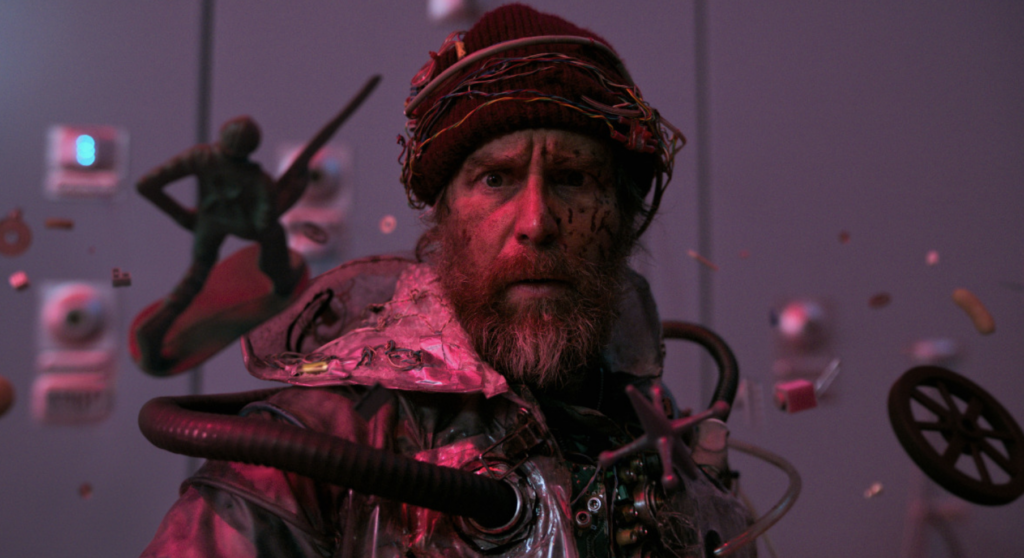Surgeon General’s Warnings
Some homegrown hip-hop can be hazardous to your health. Monotonous beats might lead to crippling boredom; trite gangsta-leaning lyrics could inspire distraught listeners to impale their own eardrums; all-hype, no-substance live shows lead to panicked crowds squeezing through exit doors, trampling bystanders in the process. Tech N9ne‘s absolute power (and an eight-song sampler suggests his new disc will be even hotter than ‘Hellic) conceals the problem like bright green paint coating a barren sun-scorched landscape. But the field isn’t as fertile as it appears.
In fact, the scene is in critical condition. Fortunately there’s a Surgeon on duty to make a few crucial cuts.
Steve “Surgeon General” Garcia has worked with an assortment of top local lyricists, such as Mac Lethal and Tech protégé Grant Rice. Garcia helmed the Veteran Click compilation, a touchstone disc from 1999 that remains the strongest, most diverse multiartist document in Kansas City hip-hop history. Meeting monthly with Joc Max and Tech’s beat-blasters Don Juan and Icy Roc, Garcia shares production techniques and vibes off the area’s freshest unreleased sounds. His latest CD, Music Never Ends, jumps from club-banging party starters to computerized blip beats to thick, head-nodding funk, infusing it all with genuine Latin flavor. He has a home studio at which he uses computers, drum machines, keyboards and samplers to compose multilayered beats at all hours. Basically, he knows what he’s talking about. So hip-hop upstarts, heed the Surgeon General’s warnings:
· Keep the live show moving. Too often, KC rap shows consist of a few lyricists, a handful of hype men and a posse of buddies with no discernible talents, all pacing menacingly like players in a massive pro-wrestling tag-team double-cross. If all Nas needs is one mic, why does an unsigned amateur opening for a step show need six or seven? As for the loiterers, either require them to wear matching outfits and perform choreographed moves or order them to do their spectating from the floor.
One of the people onstage should be a DJ that’s mixing the beats live, adding flexibility and organic appeal to the set. If an artist raps as well as DJs, the way Garcia does, a DAT might be necessary. In that case, keep the snippets moving quickly. At the Hurricane on Thursday, July 18, Surgeon General and his partners in rhyme MD23 and Mr. Luna plan to stuff dozens of tunes into a thirty-minute window by performing verses instead of entire songs. “That way, we can show people the variety of our beats and our lyrics,” Garcia explains. But once you’ve programmed the backdrops, don’t try to flip the script. At the Granada a few years back, veteran duo Black Sheep tried to accommodate a request and ended up scanning the tape to find the correct track, an exercise that was as pathetic as it was yawn-inducing.
· If the people just don’t care, don’t make them throw their hands in the air. A common hip-hop fallacy holds that mindless banter will rouse uninterested concertgoers. If you say, “When I say X, you say Y” and nobody says shit, try another tactic — freestyle, throw on a faster beat, anything but calling for a response that will never come. “We’ll do some of that just to see where the crowd is at,” Garcia says. “It’s hip-hop to do that, to let them know that we know they’re there. But if the crowd isn’t participating, we won’t do it.”
· Switch up the tone, lyrically and musically. Master lyricists such as Common, Masta Ace and Tech move easily from social commentary to witty wordplay to just clownin’, and their beats follow suit. Garcia does his share of drinking, bumping and grinding on Music Never Ends, but he also gets personal on a track about dropping out of college to produce music full-time. He also joins fellow Mexican rhymers Mr. Luna and MD23 in flipping the bird at the U.S. Border Patrol, a gesture that, though he laughs it off, is more politically active than nearly anything else that appears on local rap wax.
[page]
· Don’t sleep on the business end. Tech could devote a concept album to recording’s shady side (check “Industry Is Punks,” a turbulent tirade from his upcoming effort), but he’s been able to survive career-threatening disasters due to his willingness to leave fool’s gold on the table and self-promote when necessary. Too often, promising producers construct tight beats for mysterious projects, then seethe as the albums to which they contributed either disappear without recognition or succeed without the producers’ receiving due credit. In either case, payment is unlikely. “Get money first before you even touch the boards,” stresses Garcia, who’s still trying to collect a $250 check.
· Collaborate early and often. In the rap game, if you’re talented enough, saturation isn’t a problem — peep Timbaland and the Neptunes, who churn out dozens of hot tracks for various artists without losing spark, or Method Man and Mystikal, whose cameo flows can save a song. On the local front, Tech popped up on countless low-budget KC projects before working up to sharing song space with RZA and Eminem. The Popper swaps tracks with Nelson El, just as DVS Mindz collaborates with Tha Zou. For Garcia, there’s no such thing as a poor partnership — once the payment is in hand, of course. “From working with Mac Lethal, I’ve got the Lawrence crowd and the Internet crowd,” he says. “Tech N9ne’s fanbase knows me because of Grant Rice. I played at the Popper’s show at Tremors in Lawrence and got a really strong response. Producing and playing with as many people as you can is the way to get noticed.”
· Be your own publicist. Not all rappers can have a tricked-out, airbrushed ride that instantly announces their presence to all pedestrians, but Tech and the Rogue Dog Villians do the small stuff, too, such as leafleting for shows and distributing samplers. Garcia passed out 300 advance copies of Music Never Ends to Westport clubgoers to promote the upcoming Hurricane gig. “I’d just ask them, ‘Do you like rap music?'” he says. “Then I’d give them the free CD, and they’d be like, ‘Hell, yeah.'”
· Be original. The “no coast” sound championed by DVS Mindz and Tech N9ne sounds like nothing else happening in hip-hop’s major metropolitan areas. Infinitely less exciting are Midwest rappers who stir Southern bounce, LAid-back funk and East Coast energy into a lukewarm, taste-dulling melting pot. Worst of all are acts that bait the crowd with samples of popular hits, then switch to their own unfamiliar, usually low-tempo material, creating hostility in what would have been a merely apathetic audience. “Don’t ever try to sound like something that’s out right now,” Garcia instructs. “Don’t just take what’s given to you; like, don’t use the sounds that come with your keyboard. And you’ve got to change the drums on every track, or it will all sound the same.”
· Keep the kids involved. For all Tech N9ne’s hardcore appeal, he’s not averse to cleaning up his lyrics for the radio or at family-friendly events such as Spirit Fest — and he accommodates younger listeners without losing street cred. Nelson El and Verbal Contact, KC rappers with decent followings, make tapes that underage fans can blast in their rooms without their parents tripping on obscenities. And they can bump in their trunks without the stigma of Will Smith-style soft-pop padding. When Garcia became a father five years ago, he started becoming more careful about his musical messages. “I talk about getting drunk, but that’s legal,” he explains. “I don’t call girls bitches, and I don’t talk about crack or gang-banging. Music makes me happy, and I’m trying to make happy music.”




